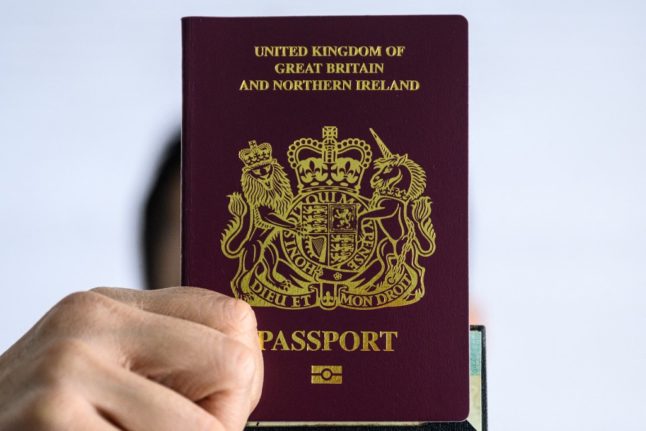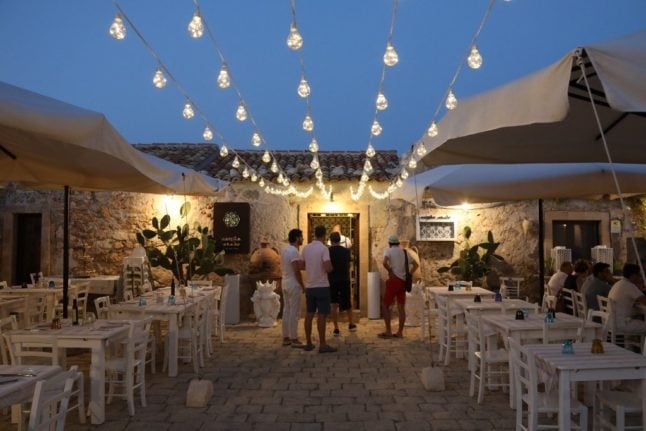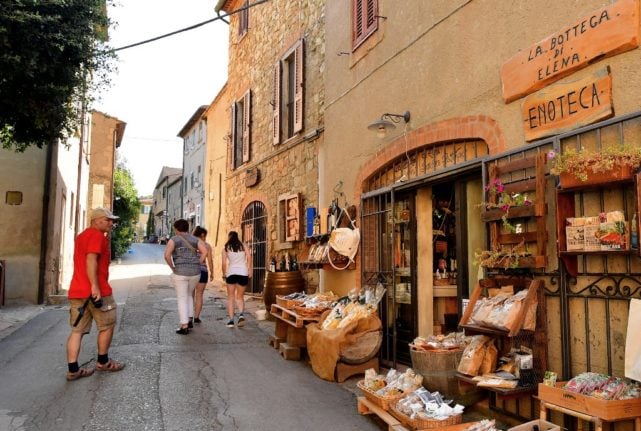What is an elective residency visa?
An elective residency visa (ERV) allows you to move to Italy for one year in the first instance, with a view to gaining permanent residency. You can’t work once you arrive or receive an ‘active’ income, so although it’s not a retirement visa it’s typically retirees who apply.
While the ERV is one of the most popular visas for those looking to make the move to Italy without job offers or family ties, it has a relatively high rejection rate, and the complexity of the process can trip up first-time applicants.
The Local interviewed three professionals who regularly assist clients with the ERV application process – Giuditta Petreni at Mazzeschi Legal Counsels, Nick Metta at Studio Legale Metta, and Elze Obrikyte at Giambrone & Partners – to get their insights into how to maximise your chances of success.
Where to start
You’ll need to apply for your ERV at the Italian consulate in the country and city nearest to where you are legally resident.
While the basic requirements are broadly the same, the application process varies slightly between countries and consulates.
READ ALSO: ‘Seek legal advice’: Your advice on applying for Italian visas post-Brexit
In some countries, including the UK (but not the US and Canada), Italian consulates outsource the process of gathering applications and managing appointments to third-party companies like VFS Global.
In most cases you will need to make an in-person appointment to file your application. During the pandemic some consulates introduced postal applications, and a few have retained this option.

You’ll want to start by going to the website of your local consulate and looking over their ERV requirements and instructions. If anything is unclear or information is missing, ask for clarification.
The consulate has 90 days to process your application, though usually you’ll get an answer within weeks. It can take months to get an appointment at some places, however, so you’ll need to do your research and factor the average wait time into your plans.
Requirements
Generally, the key requirements for the ERV are:
- One or more passport photos.
- Your passport, which should be valid for at least 3 months after the date when your ERV would expire (you need to send in your actual passport, so plan not to travel abroad for 90 days).
- Separate application forms for each person applying (even if you are applying as a married couple).
- Proof of passive income of just over €31,000 per person or €38,000 joint income per year for married couples plus five percent per dependent minor.
- A valid marriage certificate (re-issued in the past six months) if you’re applying as a couple, and a valid birth certificate (re-issued in the past six months) for dependent minors.
- A property ownership deed for an Italian property or a rental lease agreement (not an Airbnb or other short-stay booking).
- One-way travel tickets to Italy.
- Proof of private health insurance.
- An application fee of €116 per person.
Regardless of whether or not it’s required by your consulate, the experts we spoke to also recommend:
- A cover/motivation letter explaining why you want to move to Italy. This should include as much supporting evidence as possible of your connection to Italy and commitment to moving there long-term – not just say that you really like the food and weather.
- Another cover page with a clear summary of all the documents included in the application, what information they contain, and how they relate to each requirement.
READ ALSO: EU Blue Card: Who can get one in Italy and how do you apply?

The experts’ advice
Two of the most common mistakes experts say people make when applying for the ERV is thinking they can come to Italy to open a B&B (this counts as working), and believing that having substantial savings is the same thing as a passive income.
READ ALSO: Digital nomad: What are the rules on working remotely from Italy?
“We’ve had clients come to us with very significant wealth – two, three-plus million – invested in the stock market, bonds, but they didn’t have any conventional income… so the consulate told them they would not qualify,” says Metta.
For people in this situation, lawyers or financial advisors can assist you in turning your savings into a passive income stream. Buying property that can be rented out is a common solution that is generally regarded favourably by decision-makers, say Metta and Obrikyte.
The next piece of advice is to include as much relevant documentation as possible with your application. For example, even though not all consulates require travel tickets, “it’s always better just to enclose them,” says Obrikyte.
Petreni says that in her experience, it helps if an applicant owns a property in Italy rather than signing a rental contract, as it shows you’re committed to relocating there.
Of course, you may not want to invest in a property when you don’t know for sure you’ll be able to move. Even as a tenant, standard rental contracts in Italy are for a minimum of four years, and temporary 12-month contracts tend to be viewed less favourably by the consulate, which wants evidence of a long-term commitment.
READ ALSO: What you need to know about navigating Italian rental contracts
Metta says he gets around this Catch-22 by advising clients who don’t own Italian property to sign a 12-month lease agreement but add a clause that allows them to leave with two or three months’ notice, explaining (largely for the consulate’s benefit) that they intend to property-hunt once in Italy as they plan to relocate permanently.
Lastly, Metta advises clients to book an appointment at the very start of the process – before gathering your documentation – in order to streamline things, as it usually doesn’t cost anything to book or cancel an appointment.

The consulate is king
A key concept that applicants need to wrap their heads around at the start of the process is that your consulate has total control over your application, and can introduce additional requirements at will.
In fact, says Petreni, it’s not so much the consulate as the one individual working there who has all the power to decide who gets an ERV: “One consulate can be very strict, but if the officer changes, then it can become a friendly consulate.”
Unfortunately, you can’t choose a consulate with a more ‘lenient’ officer, as you can only apply to the one where you’re legally resident.
READ ALSO: Visas and residency permits: How to move to Italy (and stay here)
Because of this, you want to be careful to couch your requests in the politest of language and be humble in your dealings with anyone at the consulate. “You don’t want to go there and say ‘oh, here is the printing of the law’ and this and that – absolutely not,” says Metta.
You also want to avoid doing anything that could even imply you’re making a demand. For example, you’ll want to book your travel tickets for at least 90 days after your appointment date – the full period allotted for them to make a decision.
The most alarming discretionary power held by the consular officer from an applicant’s perspective is their ability to stipulate a passive income threshold that is far higher than the official minimum of €31,000 per person or €38,000 per couple.
Petreni says it’s “typical” for the consulates Mazzeschi deals with to require three to four times this amount.
Metta’s experience is less extreme – “in general, they will honour the €31,000, one person and €38,000, spouse” – but he’s also dealt with consulates that interpret the rules as requiring €31,000 per person, regardless of whether they are married, and a few routinely say they won’t take less than €100,000 per person.
Unfortunately, consulates are allowed to do this, as the minimum is “purely indicative” says Petreni – while it feels unfair, they ultimately have the power to set their own thresholds.

What to do if you get rejected
Fortunately, it’s not necessarily the end of the line if your application is rejected on financial or other grounds.
Metta says his colleagues frequently contact the officer in charge at the consulate if they’ve issued a rejection to try and negotiate a solution, and this often works.
In a recent case where a client was asked to show income of €100,000, “we contacted the person in charge, exchanged correspondence, provided some extra legal support in terms of evidence and official sources, and we got another appointment and the person finally got their visa,” he says.
Obrikyte says it’s typical for consulates to issue a ‘pre-rejection’ letter before delivering their final answer that specifies what the sticking point is, giving you a chance to fix the issue.
READ ALSO: ‘Arduous process’: What to expect when applying for Italian permanent residency
“In that occasion it is possible to try to negotiate and change their mind, and this happens very very often,” she says.
If this doesn’t work and you receive an official rejection, you can appeal in court. Obrikyte says that in her experience, simply notifying the consulate that a claim has been filed has caused them to change their minds and issue the visa.
Metta, however, advises against filing an appeal, due both to the time and expense involved and the danger that it could work against you.
“If you go through court, that requirement will pass, but there will be… I don’t want to say retaliation, but there will definitely be a dragging, forever, of the process.”
Instead, he advises clients to start from scratch and reapply. “Usually what we recommend is, let’s rearrange your finances and submit the paperwork – it will be so much faster, easier.”
Please note that The Local cannot advise on individual cases. For further information on the ERV and how to apply, visit the Italian foreign ministry’s visa website.




 Please whitelist us to continue reading.
Please whitelist us to continue reading.
Member comments